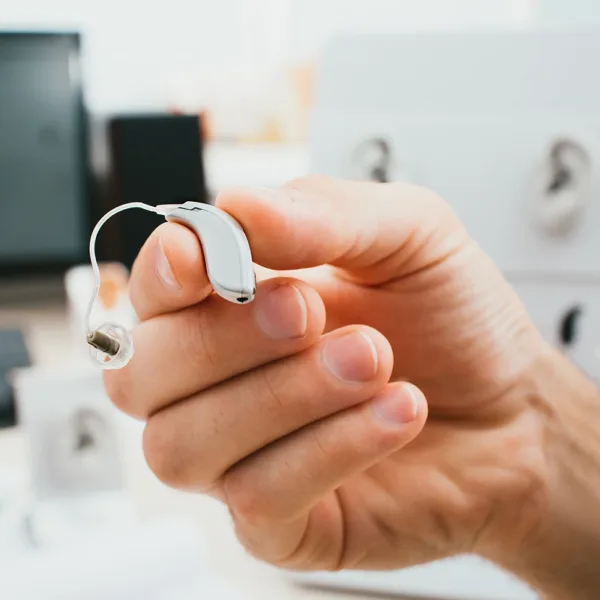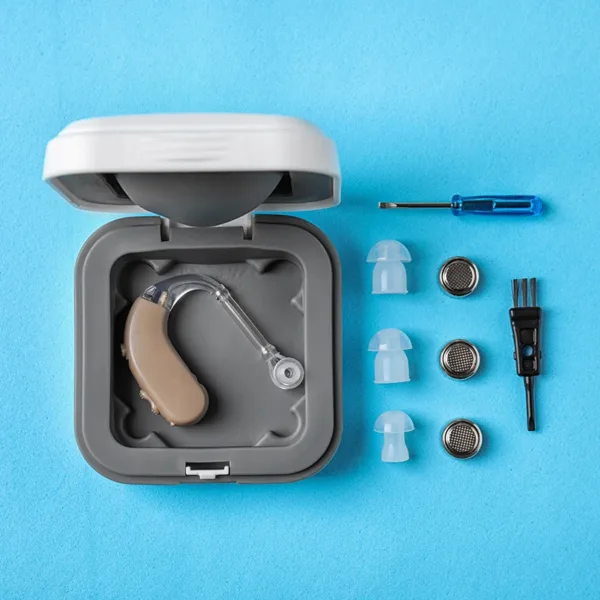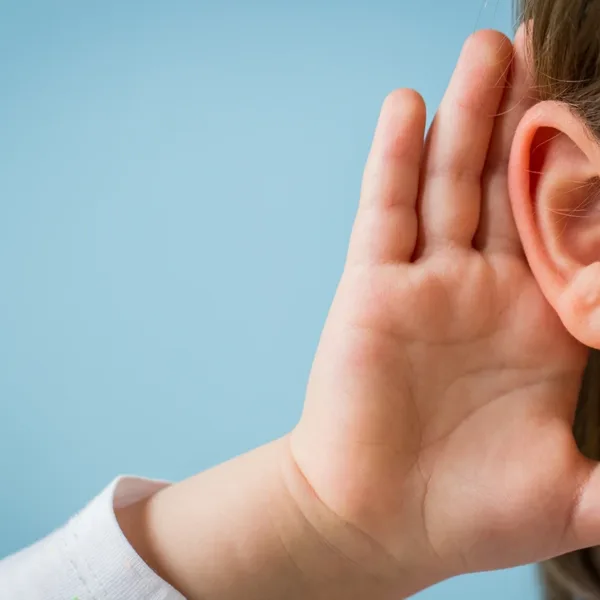
In recent years one question has garnered increased attention within the medical and scientific communities: Can hearing loss cause dementia? While these conditions may seem unrelated, a growing body of research has found a direct link between untreated hearing loss and an increased risk of dementia in older adults.
In fact, researchers at Johns Hopkins University of Medicine are now saying that even mild degrees of hearing loss double the risk of dementia. The study, published in January of 2023, also found that moderate hearing loss triples the risk of dementia, and severe hearing loss increases the likelihood by five times.
Hearing loss is an incredibly common condition with effects that extend far beyond its immediate impact on communication. In this article, we look at the connection between untreated hearing loss and dementia, as well as the crucial role hearing aids play in mitigating cognitive decline.
The Link Between Untreated Hearing Loss and Dementia

Research has consistently highlighted a notable link between untreated hearing loss and dementia. According to a 2020 Lancet Commission report, hearing loss is the largest treatable risk factor for dementia in people between the ages of 45-65. The same study also states that up to 8% of dementia cases are related to untreated hearing loss.
The World Health Organization (WHO) estimates that nearly 10 million new cases of dementia are reported every year. This means that 800,000 new dementia cases can be attributed to hearing loss annually.
With the number of cases of hearing loss and dementia on the rise globally, understanding how these two seemingly unrelated conditions are linked is more crucial than ever. Below, we provide a comprehensive overview of the impact of untreated hearing loss on brain functions and some of the factors that can contribute to the increased risk of dementia.
Cognitive Overload
Recent studies suggest that untreated hearing loss places an additional strain on the brain and diverts cognitive resources from other vital functions. The heightened effort required to interpret and process auditory information is called cognitive overload, and over time it can lead to a decline in other cognitive abilities.
Our ears play a number of roles in not only detecting sound but also in helping our brain understand our surroundings. When sound waves enter our ears, these vibrations are converted into electrical signals that then get sent to our brain’s auditory cortex for interpretation. This process allows us to comprehend speech, perceive volume, distinguish the location a sound came from, and more, all so we can navigate and interact with our surroundings effectively.
When our hearing is compromised, this natural flow of auditory information to the brain is interrupted, challenging our ability to interpret and comprehend the sounds happening around us. This means the brain must work even harder to interpret and process incoming sounds, resulting in cognitive overload.
As the brain copes with the challenges of hearing loss, it reroutes other cognitive resources from functions such as memory and problem-solving to help process auditory information instead. Over time, this can result in the gradual decline of these other cognitive functions and increases the risk of conditions like dementia.
Accelerated Brain Tissue Atrophy
Numerous studies linking hearing loss and conditions such as dementia and Alzheimer’s disease, attribute it to brain tissue shrinkage (atrophy) in the temporal lobe. The temporal lobe is a crucial region of the brain responsible for cognitive functions like language and speech comprehension, memory, sensory processing, and emotional regulation. Tissue atrophy in this region of the brain is one of the leading indicators of early Alzheimer’s disease.
As we age, our brains naturally shrink over time, however, according to a study conducted by Johns Hopkins, the lack of auditory stimulation due to hearing loss can actually accelerate brain tissue atrophy. During the study, a diverse selection of older adults with pre-existing hearing loss received annual MRI brain scans over the course of 19.5 years. When compared to the MRIs of people with healthy hearing, researchers found that on average, the adults with hearing loss experienced an extra cubic centimeter of brain tissue atrophy in the temporal lobe every year.
Like a muscle that weakens from lack of use, our brain requires consistent stimulation to maintain healthy cognitive function. A healthy auditory system is constantly processing sounds. Even while we sleep our brains receive auditory stimulation, whether we are consciously aware of it or not. The results of the MRI scans suggest that reduced auditory stimulation due to untreated hearing loss accelerates the deterioration of brain tissue in the temporal lobe, increasing the likelihood of dementia.
Social Isolation
Research indicates that older adults with hearing loss are more likely to experience feelings of loneliness and social isolation increasing their risk of developing dementia. One scientific study by Johns Hopkins University and Bloomberg School of Public Health found that the risk of developing dementia goes up by 27% when older adults feel socially isolated.
People with hearing loss often face communication challenges that can lead to feelings of frustration, inadequacy, and even a decreased sense of self-confidence. As a result, they may avoid engaging in social activities, such as group gatherings, or even casual conversations. As hearing loss progresses, recurring commination issues or lack of engagement can put a strain on relationships, further fostering a sense of isolation.
Enriching social interactions helps stimulate the brain, keeping it active and engaged. However, hearing loss often leads to difficulties in communication, causing withdrawal or avoidance of social interfacing altogether. As these studies suggest, the lack of social engagement and stimulation can have detrimental effects on cognitive functions, contributing to the development of dementia.
How Hearing Aids Reduce the Risk of Dementia

Clinical studies repeatedly demonstrate the vital importance of early detection and intervention of hearing loss to reduce the risk of conditions such as Alzheimer’s disease and dementia. A study conducted in 2023 by researchers at John Hopkins found that the use of hearing aids can decrease the risk of dementia by 32%. Another research project backed by the National Institutes of Health found that hearing aids reduced the rate of cognitive decline by almost 50% in older adults at high risk of dementia.
Hearing aids play a crucial role in restoring the auditory stimulation our brains need to maintain the neural pathways associated with processing sound. Timely hearing loss treatment can also mitigate cognitive overload allowing the brain to allocate cognitive resources more efficiently, reducing the risk of decline. By improving communication abilities, hearing aids can also facilitate enriching social engagement, lowering the risk of social isolation and its associated negative effects on cognitive health.
Research supporting the link between hearing aid use and a reduced risk of cognitive decline and conditions like dementia and Alzheimer’s disease continues to grow. If you or someone close to you is concerned about hearing loss, it’s important to schedule a comprehensive evaluation with a hearing care specialist as soon as possible. Early detection and treatment can prevent the ripple effect that hearing loss can have on your quality of life and cognitive well-being.
Schedule a Hearing Test Today
Understanding the link between hearing loss and dementia is crucial not only for those directly affected but for anyone interested in safeguarding their cognitive health. Regular hearing check-ups and timely intervention can make a significant difference in preserving cognitive function and reducing the risk of dementia.
Find a hearing clinic near you and take the first step towards safeguarding your hearing health and quality of life for years to come.







Have a question or Comment?